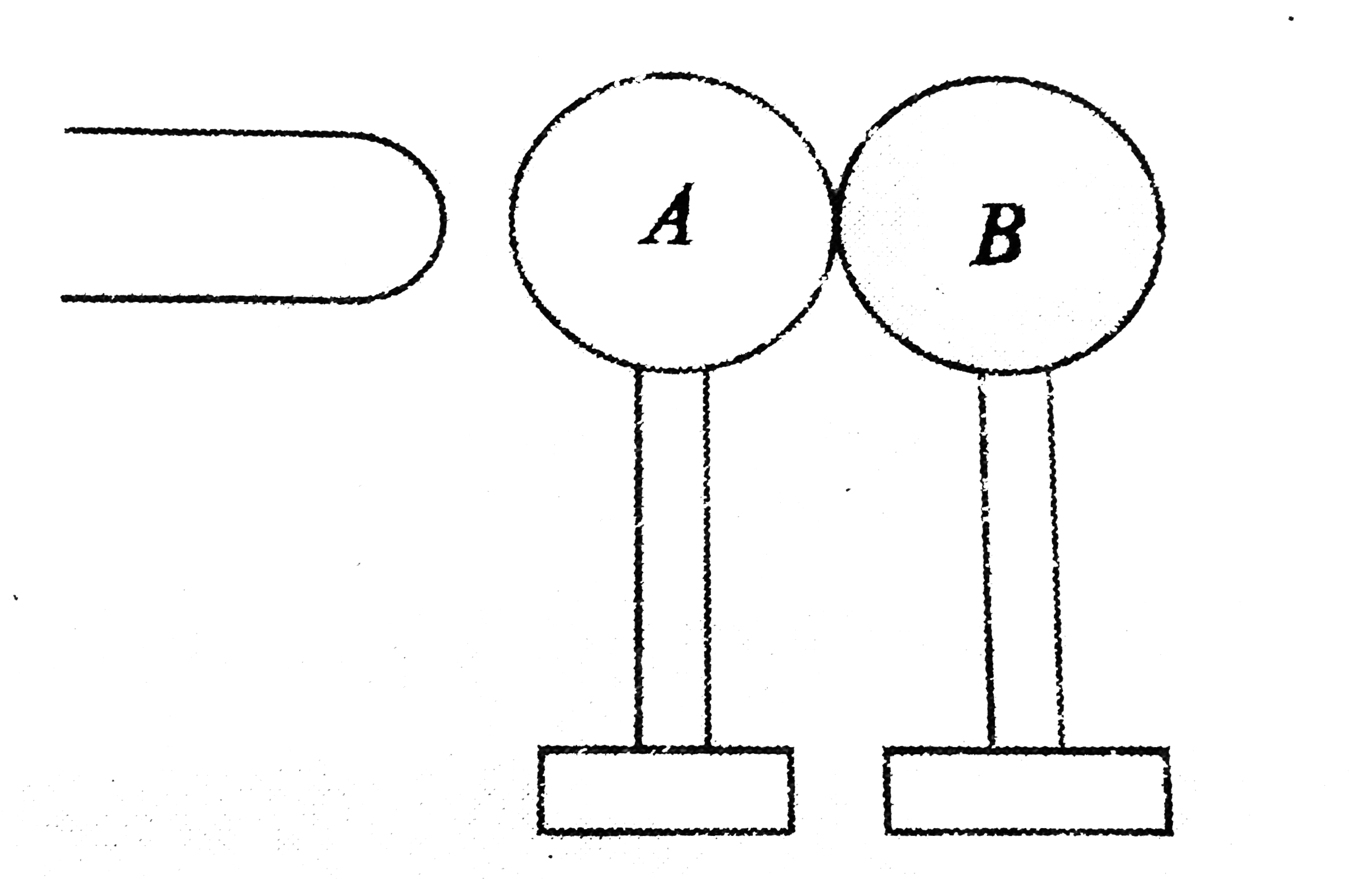Plastic straws A and B are rubbed with dry cotton cloth. What will happen if they are brought near each other?
To solve the question about what happens when plastic straws A and B are rubbed with dry cotton cloth and then brought near each other, we can follow these steps:
1. Understanding Charging by Rubbing:
- When plastic straws A and B are rubbed with dry cotton cloth, they gain electric charges. This process is known as triboelectric charging.
- The cotton cloth transfers electrons to the straws, causing them to become charged.
2. Determining the Type of Charge:
- Since both straws are rubbed with the same material (dry cotton cloth), they will acquire the same type of charge.
- For instance, if straw A becomes positively charged, straw B will also become positively charged.
3. Understanding the Interaction of Charges:
- According to the principles of electrostatics, like charges repel each other while opposite charges attract.
- Since both straws A and B have the same charge (either both positive or both negative), they will repel each other.
4. Conclusion:
- Therefore, when plastic straws A and B are brought near each other after being rubbed with dry cotton cloth, they will repel each other due to having the same type of charge.
Final Answer:
When plastic straws A and B are brought near each other after being rubbed with dry cotton cloth, they will repel each other.
- When plastic straws A and B are rubbed with dry cotton cloth, they gain electric charges. This process is known as triboelectric charging.
- The cotton cloth transfers electrons to the straws, causing them to become charged.
- Since both straws are rubbed with the same material (dry cotton cloth), they will acquire the same type of charge.
- For instance, if straw A becomes positively charged, straw B will also become positively charged.
- According to the principles of electrostatics, like charges repel each other while opposite charges attract.
- Since both straws A and B have the same charge (either both positive or both negative), they will repel each other.
- Therefore, when plastic straws A and B are brought near each other after being rubbed with dry cotton cloth, they will repel each other due to having the same type of charge.
When plastic straws A and B are brought near each other after being rubbed with dry cotton cloth, they will repel each other.
Topper's Solved these Questions
- SOME NATURAL PHENOMENABOOK - NCERT EXEMPLARCHAPTER - SOME NATURAL PHENOMENAEXERCISE - SHORT ANSWER QUESTIONS
8 Videos
- SOME NATURAL PHENOMENABOOK - NCERT EXEMPLARCHAPTER - SOME NATURAL PHENOMENAEXERCISE - LONG ANSWER QUESTIONS
5 Videos
- SOME NATURAL PHENOMENABOOK - NCERT EXEMPLARCHAPTER - SOME NATURAL PHENOMENAEXERCISE - VERY SHORT ANSWER QUESTIONS (STATE WHETHER THE FOLLOWING ARE TRUE OR FALSE ).
5 Videos
- LIGHTBOOK - NCERT EXEMPLARCHAPTER - LIGHTEXERCISE - LONG ANSWER QUESTIONS
9 Videos
- SOUNDBOOK - NCERT EXEMPLARCHAPTER - SOUNDEXERCISE - LONG ANSWER QUESTIONS
5 Videos
Similar Questions
Knowledge Check
What will happen when we rub a glass rod with silk cloth?
ASome of the electrons from the glass rod are transferred to the silk cloth.BThe glass rod gets positive charge and silk cloth gets negative charge.CNew charge is created in the process of rubbing.Dboth (a) and (b) are correct.When two bodies are rubbed against each other?
AThey acquire equal and similar charges.BThey acquire equal and opposite charges.CThey acquire unequal and similar charges.DThey acquire unequal and opposite charges.
Figure shows that a positively charged rod is brought near two ucharged metal spheres A and B clamped on insulated stands and palced in contact with each other.

(i) What would happen if the rod is removed before the spheres are separated?
(ii) Would the induced charges be equal in magnitude even if the spheres had different sizes or different conductors?
(iii) What will happen if the spheres are separated first and then the rod is rmoved far away?
View SolutionWhat happens to the water when wet clothes dry?
View SolutionA glass rob is rubbed with a silk cloth. What type of charge is acquired by silk cloth ?
View SolutionWhat happens when you rub a copper rod with a cloth?
View SolutionWhat happens when amber is rubbed with fur?
View SolutionWhat happens when amber is rubbed with fur?
View Solution
